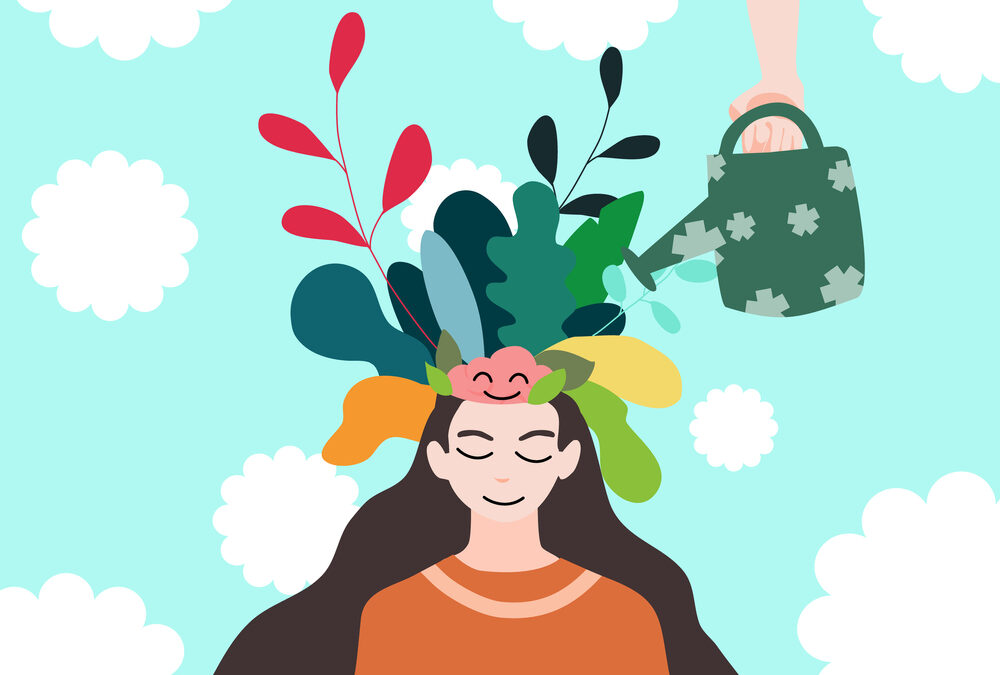What Is Mental Health?
Mental health includes our emotional, psychological, and social well-being. It affects how we think, feel, and act. It also helps determine how we handle stress, relate to others, and make choices. Mental health is important at every stage of life, from childhood and adolescence through adulthood.
Over the course of your life, if you experience mental health problems, your thinking, mood, and behavior could be affected. Many factors contribute to mental health problems, including:
- Biological factors, such as genes or brain chemistry
- Life experiences, such as trauma or abuse
- Family history of mental health problems
Early Warning Signs
Not sure if you or someone you know is living with mental health problems? Experiencing one or more of the following feelings or behaviors can be an early warning sign of a problem:
• Having low or no energy
• Feeling helpless or hopeless
• Smoking, drinking or using drugs more than usual
• Feeling unusually confused, forgetful, on edge, angry, upset, worried, or scared
• Yelling or fighting with family and friends
• Thinking of harming yourself or others
Types of mental health problems
Mental disorders
A wide range of conditions affects mood, thinking, and behavior.
Anxiety disorder
A mental health disorder is characterized by feelings of worry, anxiety, or fear that are strong enough to interfere with one’s daily activities.
Bipolar disorder
A disorder associated with episodes of mood swings ranging from depressive lows to manic highs.
Dementia
A group of thinking and social symptoms that interferes with daily functioning.
Depression
The main symptoms are feeling ‘low’ and losing pleasure in things that were once enjoyable. These symptoms may be combined with others, such as feeling tearful, irritable, or tired most of the time, changes in appetite, and problems with sleep, concentration, and memory.
People with depression typically have lots of negative thoughts and feelings of guilt and worthlessness; they often criticize themselves and lack confidence.
Positive mental health allows people to:
• Realize their full potential
• Cope with the stresses of life
• Work productively
Ways to maintain positive mental health include:
• Getting professional help if you need it
• Connecting with others
• Staying positive
• Getting physically active
• Helping others
• Getting enough sleep
Tips for improving your mental health
1.Value yourself:
Treat yourself with kindness and respect, and avoid self-criticism. Make time for your hobbies and favorite projects, or broaden your horizons. Do a daily crossword puzzle, plant a garden, take dance lessons, learn to play an instrument, or become fluent in another language.
2. Take care of your body:
Taking care of yourself physically can improve your mental health. Be sure to:
• Eat nutritious meals
• Avoid smoking
• Drink plenty of water
• Get enough sleep. Researchers believe that lack of sleep contributes to a high rate of depression in college students.
3. Surround yourself with good people:
People with strong family or social connections are generally healthier than those who lack a support network. Make plans with supportive family members and friends, or seek out activities where you can meet new people, such as a club, class, or support group.
4. Give yourself:
Volunteer your time and energy to help someone else. You’ll feel good about doing something tangible to help someone in need – and it’s a great way to meet new people.
5. Learn how to deal with stress:
Like it or not, stress is a part of life. Practice good coping skills: Try- One Minute Stress Strategies, do Tai Chi, exercise, take a nature walk, play with your pet or try journal writing as a stress reducer. Also, remember to smile and see the humor in life. Research shows that laughter can boost your immune system, ease pain, relax your body and reduce stress.
6. Avoid alcohol and other drugs:
Keep alcohol use to a minimum and avoid other drugs. Sometimes people use alcohol and other drugs to ‘self-medicate” but in reality, alcohol and other drugs only aggravate problems.
7. Get help when you need it:
Seeking help is a sign of strength – not a weakness. And it is important to remember that treatment is effective. People who get appropriate care can recover from mental illness and addiction and lead full, rewarding lives. See Resources for Stress and Mental Health for campus and community resources.



Recent Comments